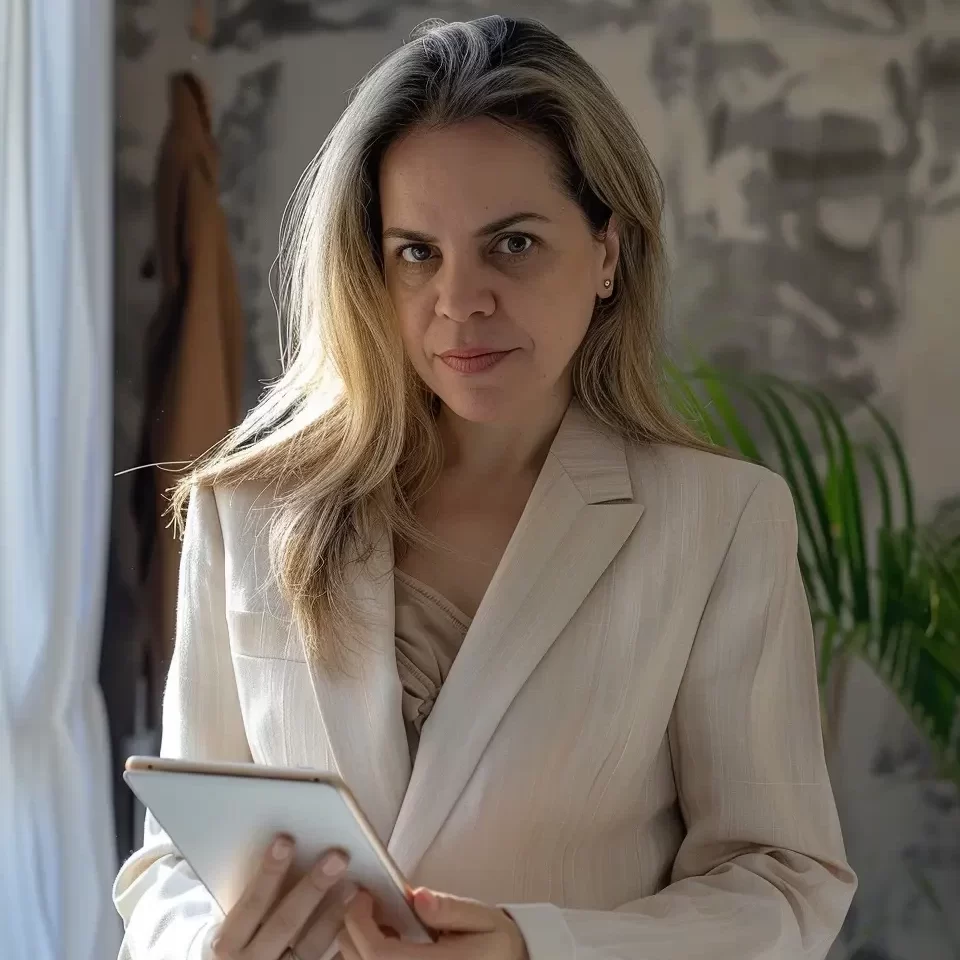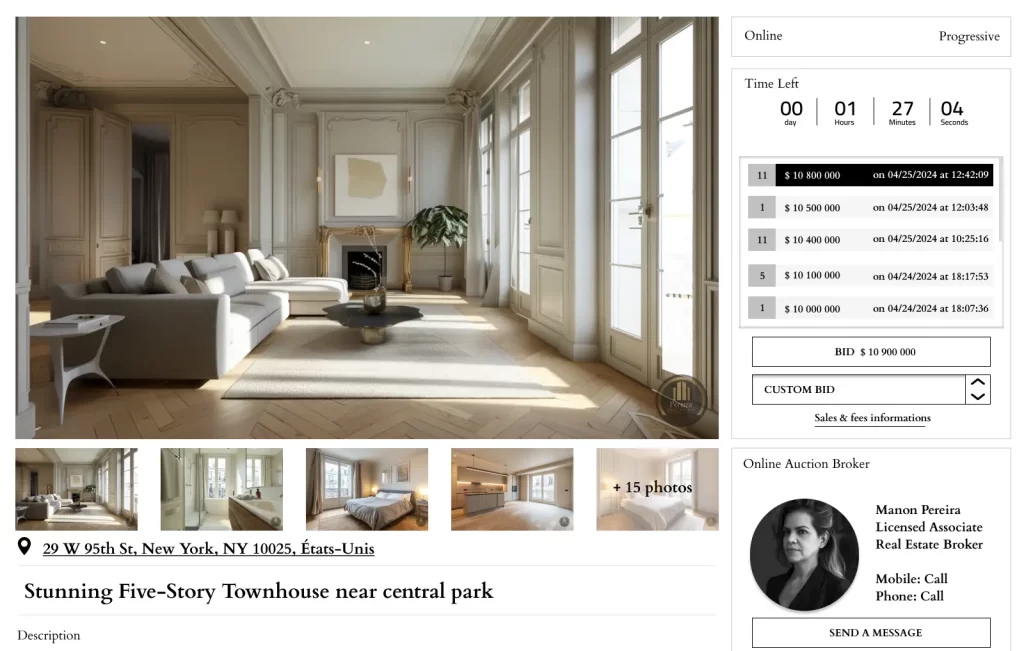Boost your sales with timed auctions
- Encourages competition among your buyers
- Let the market determine your price
- Boost your sales naturally


- Real Estate
- Timed Auction
- Progressive
Maximize your profits with our versatile timed auction system
Ideal Duration
Supply and Demand
Auction mode
Boost your business with timed auctions

Discover our different auction modes for an experience tailored to your needs
Classic auctions
In traditional auctions, bidders make successive bids, each bid having to be higher than the previous one. The item is sold to the highest bidder at the end of the auction.
Example: A painting is auctioned with a starting price of €1,000. Bidders gradually increase their bids:
- Bidder A: €1,100
- Bidder B: €1,200
- Bidder C: €1,300
- Bidder A: €1,400
The auction ends when no one bids higher and the item is sold to Bidder A for €1,400.
Reverse Auctions
In reverse auctions, bidders start by offering a high price for a good or service, then gradually lower their bids. The process continues until no one wants to bid lower, and the auction is won by the one who made the last, lowest bid.
Example: A construction project is auctioned with a starting price of €1,000,000. Companies submit increasingly lower bids:
- Company A: €950,000
- Company B: €900,000
- Company C: €850,000
- Company A: €800,000
The auction continues until no one wants to bid higher, and the company that submitted the lowest bid wins the project, in this case Company A.
Dutch Auctions
Dutch auctions start at a high price that decreases at regular intervals. The auction ends as soon as a bidder accepts the current price, and that bidder wins the item.
Example: A lot of flowers is auctioned with a starting price of €500. The price decreases by €50 every 30 seconds:
- After 30 seconds: €450
- After 60 seconds: €400
- After 90 seconds: €350
A bidder agrees to buy the lot for €350, and the auction ends.
Silent Auction
In progressive silent auctions, bidders write their bids on a piece of paper or online without the bids being immediately visible to other participants. At the end of the auction period, the item is awarded to the highest bidder.
Example: A work of art is auctioned at a gala:
- Participant A: €2,000
- Participant B: €2,800
- Participant C: €2,500
At the end of the evening, the bids are opened and the work is sold to Participant B for €2,800.
Silent Reverse Auction
For reverse silent auctions, the item or service is awarded to the lowest bid at the end of the auction period.
Example: A call for tenders is made to call on a freelancer to create a website. The silent reverse auction system is therefore chosen:
- Participant A: €4,600
- Participant B: €4,500
- Participant C: €4,300
At the end of the auction period, the lowest bid is always chosen, even if it is lower than at the beginning. In this case, Participant C wins the auction for €4,300.
Are you ready to discover your solution?
Let’s get in touch and assess together whether our solutions are suitable for your project.
Présentation Keeny 30min
This exchange will help us better understand your needs and develop a tailor-made presentation of our solution, perfectly aligned with your objectives.